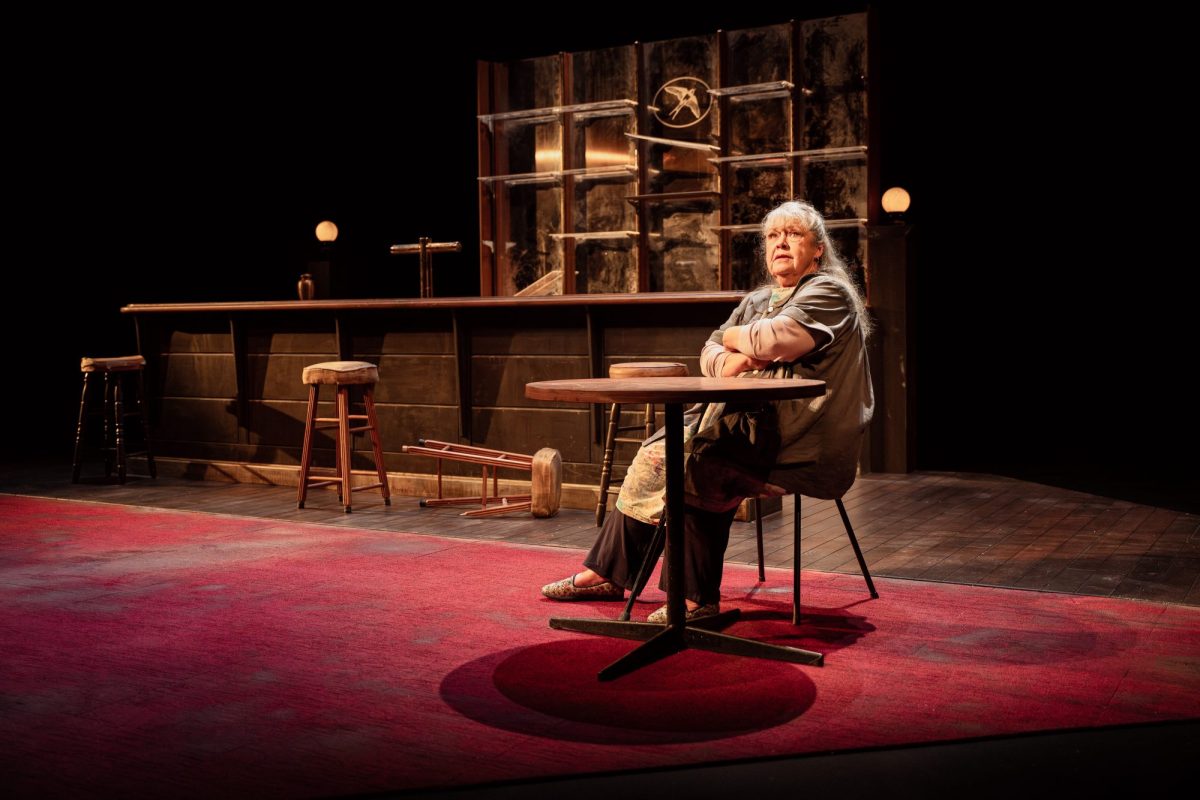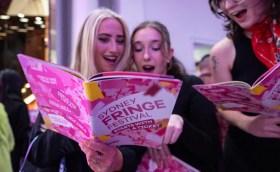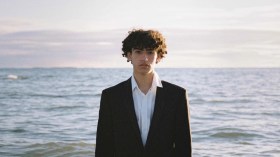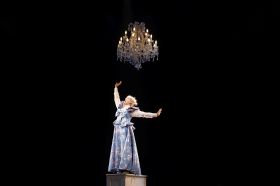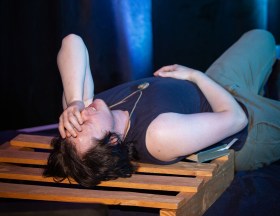The Lark is the latest Daniel Keene work, a second solo piece written for Noni Hazlehurst, following on from Keene’s Mother last year, with the same combination of writer, performer and director Matt Scholten.
Set in the front bar of The Lark, a dilapidated Melbourne pub, long past its glory days, and about to be demolished, The Lark’s proprietor Rose, born there and living virtually all her life under its roof, reminisces as the shadows of age close in, and memories of her father, the publican before she took over colour her life.
A pub is one of the hubs of Australian life. Today our pubs are more family-focussed than they were when Rose was growing up – the front bar was entirely male-occupied, with a separate Ladies’ Lounge for thirsty women to sip shandies.
Times may have changed, but characters in pubs are timeless – celebrating an event with a bunch of mates, lonely and yearning for a chat, needing solace from the woes of their former or current outside lives, wanting connection, and maybe a few bets on the doggies or the ponies whilst they skull a schooner – the range of possibilities for stories that might let us into Rose’s past and her feelings about how her life has turned out, are boundless.
We see a few of those people, brought to life in Hazlehurst’s accomplished hands; I think there is an opportunity for more variety, and layers of meaning if we saw more of these quirky people who were Rose’s daily social life from her teenage years on, and the lessons she may have learned along the way.
The Lark: Daniel Keene
The first Daniel Keene work I saw was Handspan’s Cho Cho San in its Sydney season, and his poetic voice in that wonderful collaboration was clear from the start. There are threads of this in The Lark, amidst his sure ear for Australian rhythms and vernacular, handled wonderfully by Hazlehurst.
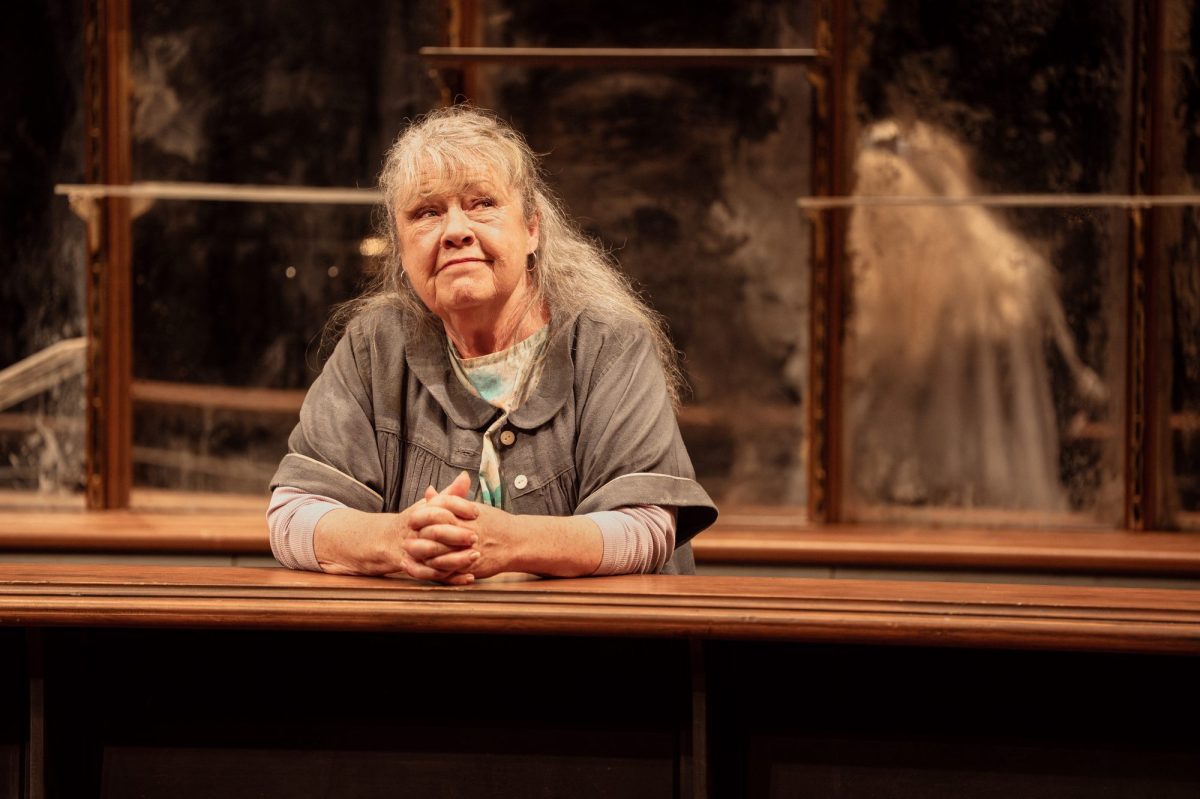
I wonder whether finding more of the poetry would give her more emotional meat to crunch on, and the audience more reasons to be drawn into Rose’s world.
A monologue might equate to a musical composition with recitative and verses building to an aria of emotion – pain. grief, regret, joy (although there is little of that here) – the subjects Rose discusses are all of similar length and energy, needing more marked dynamics to punctuate her stories. Rose’s grim, self-deprecating manner, ironic humour and refusal to feel too much limit Hazlehurst’s opportunities to explore the pain and grief and lost chances of her life through others’ stories.
We are quite close to the end of the piece before we get a major revelation – and Rose’s theatrical gesture with her father’s ashes, which should be shocking and sad, or a gesture of defiance, or a ritual, goes for nothing.
The Lark has all the ingredients of a larger work:
- one of our premier theatre writers, whose unique skills with the poetic-vernacular are so special to hear, and whose acute observations and empathy with the human condition of apparently unremarkable ordinary’ people elevates and celebrates them
- one of Australia’s best theatre and screen actors
- and the unobtrusive, assured, sensitivity of director Matt Scholten.
Now it needs to be given more poetry, more dynamics and more reasons for the audience to come into Rose’s world and feel with her. Add to this the great gift that having Hazlehurst involved presents – bringing large audiences into the theatre – and the dish will be all the richer.
The Lark is at Arts Centre Melbourne until 28 September 2025.
Discover more screen, games & arts news and reviews on ScreenHub and ArtsHub. Sign up for our free ArtsHub and ScreenHub newsletters.

